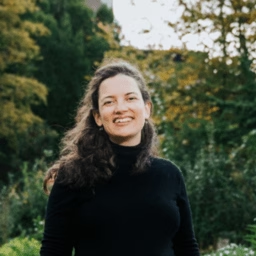TeachEUR
Support
Sustainability competencies are becoming increasingly necessary in preparing students for the challenges of the future. By focusing on sustainability competencies such as critical thinking, systems thinking, problem-solving, collaboration, and ethical decision-making, teachers can inspire students to engage with complex global issues in a way that will allow them to contribute to the transformation of society.
How to integrate sustainability?
Integrating sustainability competencies in the classroom is not just about adding a new topic to the curriculum, it is about fostering a deeper, interdisciplinary approach to education. Thus, teaching activities that focus on sustainability competencies can be a powerful, low-threshold way to connect different disciplines. They open up an interdisciplinary space where teachers and students are encouraged to see the links between scientific, ethical, social, and economic dimensions of sustainability. Such an approach not only enriches the learning experience but also fosters a holistic understanding of how the world works. It encourages students to approach problems from multiple perspectives and equips them with the tools to tackle the complex, interconnected issues that define sustainability challenges.
Competencies
Q&A about this toolbox
On this theme page, we have highlighted sustainability competencies as presented by Brundiers et al. (2021). The competencies represent knowledge, skills and attitudes that allow students to contribute to challenges and transformations towards a sustainable future. For each skill, we have developed learning activities in collaboration with lecturers from Erasmus University Rotterdam.
The competencies are presented individually, each with its own set of activities. At the same time, a single activity may contribute to the development of multiple skills. The link we make between a skill and an activity is therefore based on the best fitting match, but it is not exclusive.
The competency systems thinking encompasses the ability to
- recognise and understand relationships;
- analyse complex systems;
- think of how systems are embedded within different domains and different scales;
- deal with uncertainty.
The competency anticipatory encompasses the ability to
- understand and evaluate multiple futures - possible, probable, and desirable;
- create one’s own visions for the future;
- apply the precautionary principle;
- assess the consequences of actions;
- deal with risks and changes.
The competency normative encompasses the ability to
- understand and reflect on the norms and values that underlie one’s actions;
- to negotiate sustainability values, principles, goals, and targets, in a context of conflicts of interests and trade‑offs, uncertain knowledge and contradictions.
The competency strategic encompasses the ability to collectively develop and implement innovative actions that further sustainability at the local level and farther afield.
The competency collaboration encompasses the ability to
- learn from others;
- understand and respect the needs, perspectives, and actions of others (empathy);
- understand, relate to and be sensitive to others (empathic leadership);
- deal with conflicts in a group;
- facilitate collaborative and participatory problem solving.
The competency critical thinking encompasses the ability to
- question norms, practices, and opinions;
- reflect on one’s own values, perceptions, and actions;
- take a position in the sustainability discourse.
The competency self-awareness encompasses the ability to
- reflect on one’s own role in the local community and (global) society;
- continually evaluate and further motivate one’s actions;
- deal with one’s feelings and desires.
The competency integrated problem-solving encompasses the overarching ability to apply different problem‑solving frameworks to complex sustainability problems and develop viable, inclusive, and equitable solution options that promote sustainable development, integrating the above-mentioned competencies.
- Brundiers, K., Barth, M., Cebrián, G. et al. Key competencies in sustainability in higher education—toward an agreed-upon reference framework. Sustain Sci 16, 13–29 (2021). https://doi.org/10.1007/s11625-020-00838-2
Project team
 Ana VasquesAna Vasques is senior lecturer and researcher on Ecology, Environmental Sciences and Sustainability. She has been driving educational innovations to prepare students and teachers to contribute to transformations needed for a sustainable future for years at Erasmus University. She is now researching at the University of Aveiro in Portugal but remains involved at the EUR.
Ana VasquesAna Vasques is senior lecturer and researcher on Ecology, Environmental Sciences and Sustainability. She has been driving educational innovations to prepare students and teachers to contribute to transformations needed for a sustainable future for years at Erasmus University. She is now researching at the University of Aveiro in Portugal but remains involved at the EUR. Sascha Bol
Sascha BolRisbo
Sascha is an educational consultant and trainer at Risbo, she is passionate to design education that contributes to the transformations we need for a sustainable future and focuses on inner development of students and teachers, co-creation and impact through education. Sandra Lousberg
Sandra LousbergRisbo
Sandra is an educational consultant and teacher trainer at Risbo, focusing on teacher professionalization, in particular on active learning, AI and visualization. She is committed to inspire teachers to develop their education with a focus on student competencies, such as the competencies needed for sustainable development.
Contribution
We would like to sincerely thank all lecturers listed below for their invaluable contributions during the interviews.
- Clara Egger
ESSB
- Emilio Marti
RSM
- Karin Arts
ISS
- Katharina Bauer
ESPhil
- Margreet Luth-Morgan
ESL

